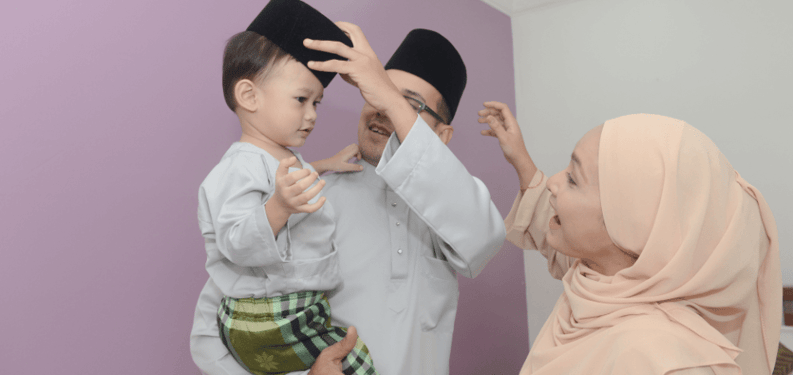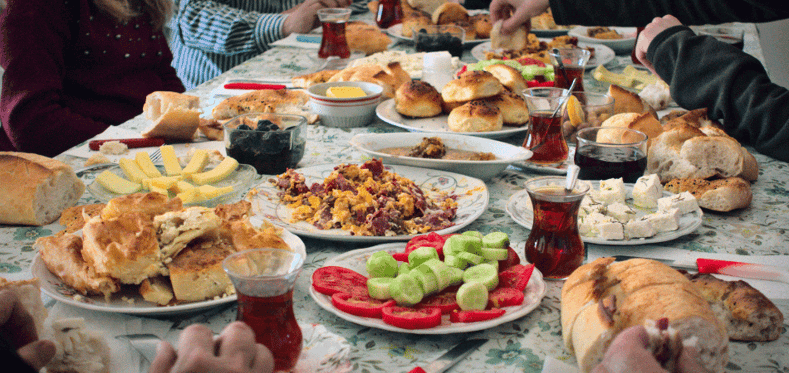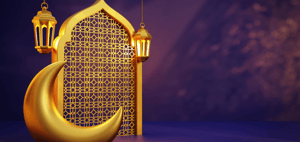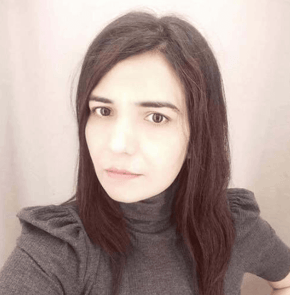Table of the content
- Preparations for Eid ul-Fitr
- Eid ul-Fitr celebrations
- Eid ul-Fitr in the modern world
- FAQ's
- Conclusion
Eid ul-Fitr is a major religious festival observed by Muslims worldwide, signaling the end of the holy month of Ramadan Kareem.
This celebration is of great significance in Islamic culture, marked by tremendous enthusiasm and fervor.
"Eid" means "festivity" in Arabic, while "Fitr" denotes the breaking of the fast, marking the end of Ramadan and the start of a new Islamic month. Initiated by Prophet Muhammad SAW, Eid ul-Fitr celebrates the end of a month-long spiritual journey and highlights gratitude, charity, and compassion.
People around the world who celebrate Eid ul-Fitr get ready for the occasion by tidying up their homes, getting new clothes, and adding festive lights. They gather for special prayers, exchange gifts, and enjoy sharing sweet treats with loved ones.
Modern celebrations also include fireworks, charity events, cultural programs, and community gatherings, fostering a sense of brotherhood and sisterhood.
Eid ul-Fitr is a joyous festival with deep cultural significance. Embracing charity during Ramadan is essential, expressing gratitude to Allah and helping those in need.
Preparations for Eid ul-Fitr
 Eid ul-Fitr, one of the most important religious festivals celebrated by Muslims worldwide, marks the end of the holy month of Ramadan.
Eid ul-Fitr, one of the most important religious festivals celebrated by Muslims worldwide, marks the end of the holy month of Ramadan.
As the month of Ramadan comes to a close, preparations for Eid ul-Fitr begin. The sighting of the moon and the start of Shawwal, the tenth month of the Islamic calendar, determine the exact date of Eid.
Muslims around the world take part in the preparations by cleaning their homes, decorating them with lights and banners, and shopping for new clothes.
Additionally, it is considered essential to give to charity, known as Zakat al-Fitr, before Eid ul-Fitr.
This charitable act ensures that everyone in the community can participate in the festivities and have enough food to break their fast. These preparations help Muslims celebrate Eid ul-Fitr with joy, gratitude, and generosity.
Eid ul-Fitr Celebrations

Eid ul-Fitr is a significant religious festival celebrated by Muslims worldwide, marking the end of the holy month of Ramadan.
The day starts with the morning prayer (Salat al-Eid), followed by a variety of social and cultural events.
One of the central themes of Eid ul-Fitr celebrations is the importance of family and community. People visit each other's homes, exchange gifts, and share traditional foods and sweets.
The feast typically includes dishes like biryani, kebabs, and samosas, as well as desserts like sheer khurma and gulab jamun.
There are also cultural and regional variations in Eid ul-Fitr celebrations, with different countries and communities having unique customs and traditions.
Regardless of these variations, the festival is a time of joy and unity, bringing people together to celebrate their faith and culture.
Eid ul-Fitr in The Modern World
.png?width=789&height=374&name=_Eid%20ul-Fitr%20celebrations%20(1).png)
Eid ul-Fitr is a significant Muslim festival celebrated worldwide to mark the end of Ramadan, the month of fasting.
With the growing Muslim diaspora and globalization, the celebration of Eid ul-Fitr has evolved to adapt to modern times.
Muslims in the diaspora often face the challenge of celebrating Eid away from their homeland and families.
However, they have found ways to celebrate the festival by gathering with their local communities and organizing prayer services and feasts.
Additionally, the advent of social media has transformed the way Muslims celebrate Eid ul-Fitr.
Social media platforms provide a virtual space for Muslims worldwide to share greetings, exchange Eid wishes and connect with their loved ones.
People also use social media to share their Eid outfits, decorations, and festive food, creating a sense of unity and joy among the global Muslim community.
FAQ's
Q:1 What is Eid ul-Fitr?
A: Eid ul-Fitr is a religious festival celebrated by Muslims worldwide, marking the end of the holy month of Ramadan.
Q:2 What is the history and significance of Eid ul-Fitr?
A: Eid ul-Fitr has been celebrated since the time of the Prophet Muhammad SAW, who instructed his followers to observe the festival after completing the month-long fast of Ramadan.
The festival is a time for Muslims to express gratitude to Allah for the strength and guidance they received during the month of fasting, and to celebrate with family and friends.
Q:3 Why is Eid ul-Fitr important in Islam?
A: Eid ul-Fitr is one of the most important festivals in Islam, as it celebrates the completion of the month-long fast of Ramadan, which is one of the Five Pillars of Islam.
The festival serves as a reminder to Muslims of the importance of discipline, self-control, and spiritual reflection, and is a time to strengthen family and community bonds.
Q:4 What are some preparations and traditions associated with Eid ul-Fitr?
A: Preparations for Eid ul-Fitr typically include cleaning and decorating the home, buying new clothes, and preparing special foods to share with family and friends.
On the day of Eid, Muslims typically attend special prayers at the mosque, exchange gifts and greetings with loved ones, and participate in community events and festivities.
Modern traditions associated with Eid ul-Fitr may include social media and digital greetings, as well as charitable giving and volunteering.
Conclusion
Eid ul-Fitr is an important festival celebrated by Muslims all over the world. It marks the end of the month-long fasting period of Ramadan and signifies the breaking of the fast.
Muslims prepare for Eid ul-Fitr by cleaning their homes, buying new clothes, and preparing special dishes.
On the day of Eid ul-Fitr, Muslims attend special prayers at the mosque, exchange gifts with their loved ones, and enjoy delicious food with family and friends.
In the modern world, the significance of Eid ul-Fitr goes beyond just a religious celebration.
It has become an occasion to promote unity, peace, and harmony among people of all backgrounds.
Muslims and non-Muslims alike come together to celebrate the spirit of Eid ul-Fitr, breaking down cultural and religious barriers.
As we celebrate Eid ul-Fitr in the modern world, let us remember the true meaning of this festival and work towards building a more inclusive and compassionate society.







